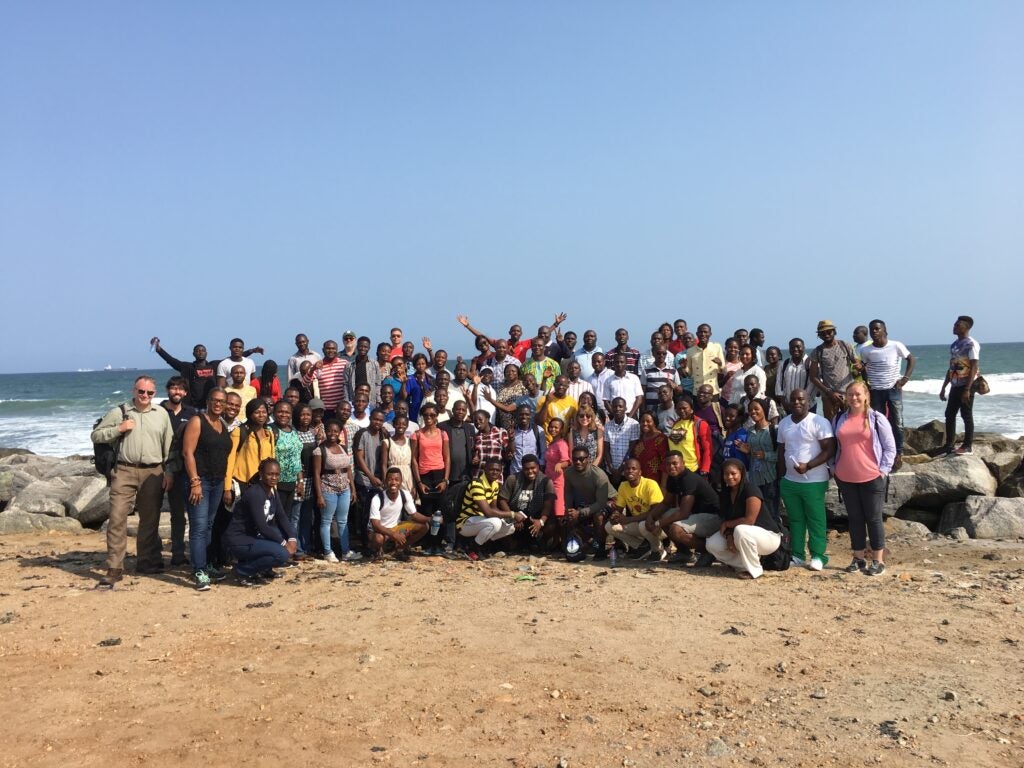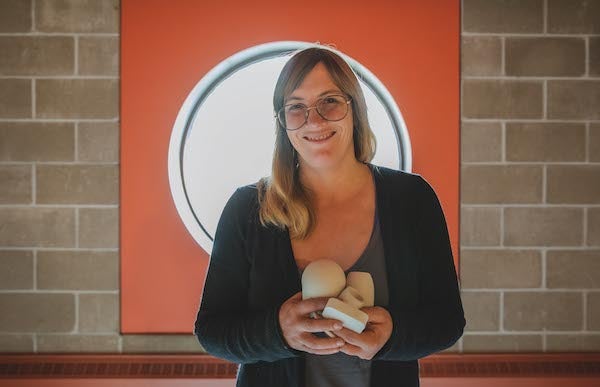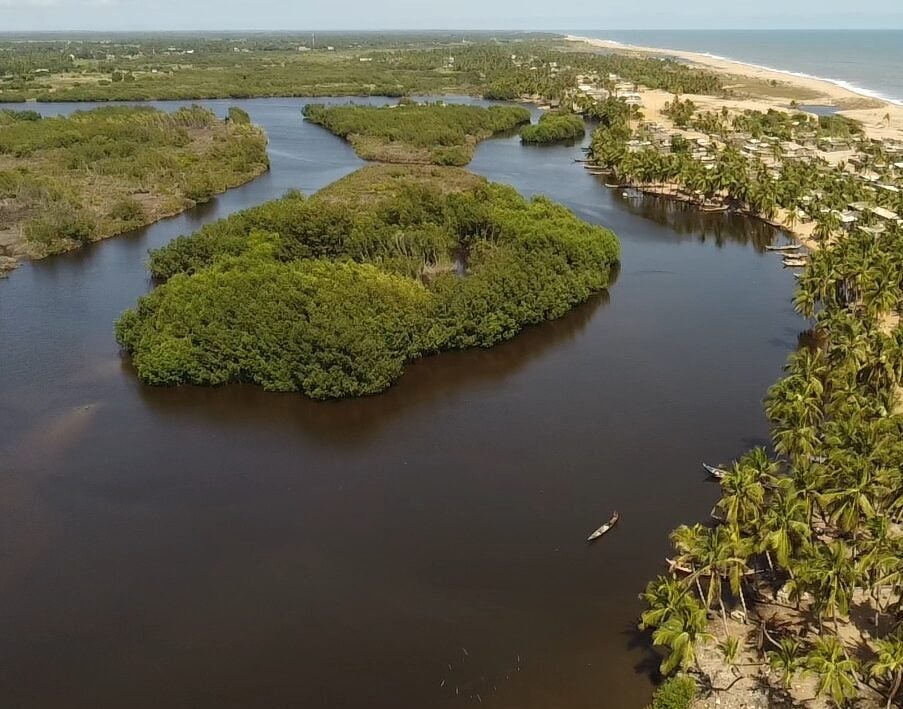June 27, 2024
A team led by the University of Rhode Island Graduate School of Oceanography, Woods Hole Oceanographic Institution and the University of Ghana has been selected to initiate a project through the Ocean Biogeochemistry Virtual Institute (OBVI) funded by Schmidt Sciences. The project, known as the Ocean Margins Initiative, is one of five selected projects aimed at addressing gaps in ocean data and modeling efforts by enhancing the breadth of research in the field and expanding capacity to understand ocean resources.
Understanding coastal margins
Coastal margins—the nexus between land and ocean, which encompasses areas such as gulfs—are the ocean’s most biologically productive regions but are difficult to represent in the global models that help us predict climate change. To improve global carbon cycle projections, the Initiative will include developing an observation and modeling system for the Gulf of Guinea. The system will capture how coastal upwelling—the climate-regulating, marine-life-supporting movement of deep ocean water toward the surface—affects the ocean overall.
“With researchers in Ghana and throughout the U.S., we are combining sea-going field work and earth system models to predict the flow of ocean carbon from the West African coast to the open ocean,” says GSO Associate Professor Melissa Omand, lead of the Oceans Margins Initiative. “Our intensive sampling will occur each summer during seasonal nutrient upwelling, and then field work will persist through the year led by the students and staff who receive training at the summer school in Nigeria and Ghana.
Local Impacts
The project will evaluate the impact of local and basin-scale ocean processes on the coastal zone and communities in West Africa. Omand adds, “The Gulf of Guinea is a really interesting place because like many other coastlines, it is highly productive. However, the physical dynamics that bring nutrients to the surface are pretty different. We don’t yet fully understand all the drivers, but we think nutrients are delivered by a combination of deep internal waves that travel across the entire Atlantic basin and interact with local processes.”
The science team is studying how these physical forces combine to enhance phytoplankton blooms, and transport the organic carbon made by the bloom offshore where it may be sequestered in the abyss or recycled near the surface and released back into the atmosphere. Ghanaian fishermen and the public will be engaged throughout the project to ensure the findings are of practical use to local communities.

Students participating in the Coastal Ocean Environment Summer School in Nigeria and Ghana. Credit: Brian Arbic 
Professor Melissa Omand holding some prototype buoys made from ocean-degradable plastic at GSO. Credit: Beau Jones
The Oceans Margin Initiative will also support Coastal Ocean Environment Summer School In Nigeria and Ghana, which attracts approximately 100 students from across Africa annually. Over the years, the school has provided hands-on, experiential learning to smaller student teams, which are trained to use various observational and modeling tools based on their interests. The URI team will be working with students on-site to build affordable, open source tools for observing ocean carbon. The floats – designed in Omand’s lab at the Graduate School of Oceanography – are made from ocean-degradable plastics that fully break down in seawater if lost or unrecoverable.
With the opportunity for sustained fieldwork and persistent engagement from the science team, many University of Ghana students are expected to complete Master’s and Ph.D. degrees through their involvement with the project.
GSO’s legacy of sustainable work in Ghana
This initiative builds on a legacy of work in Ghana from GSO and its affiliates. In 2014, USAID awarded the URI Coastal Resources Center a five-year cooperative agreement to lead the Sustainable Fisheries Management Project to rebuild marine fisheries stocks and catches through the adoption of responsible fishing practices. In response to COVID-19, the project was extended through 2021 to implement activities that prevented the spread of the virus and mitigated its economic effects on vulnerable households in fishing communities in Ghana.
Collaborative Global Efforts
Omand’s research with the Ocean Margins Initiative will contribute to a global research network that addresses critical questions about ocean carbon sequestration and the resilience of marine ecosystems. The teams from the five selected projects will collaborate to provide clarity on how much carbon dioxide the ocean can hold and how marine ecosystems can withstand a rapidly warming world. OBVI has committed $45 million to fund the research over the next five years, with additional support from Schmidt Sciences and access to the Schmidt Ocean Institute’s research vessel Falkor (too).
“Climate research is one of Schmidt Sciences’ priority areas, and we are pleased to launch OBVI as part of a series of globally connected climate programs focused on advancing fundamental science to understand the implications of climate change and mitigation strategies,” says Stu Feldman, president of Schmidt Sciences. “OBVI will address fundamental questions about specific mechanisms and regional processes. More broadly, it will fill a need in the ocean sciences for model refinement and integration looking across systems, scales, and habitats.”
This story was written by Mackensie duPont Crowley, digital communications coordinator with URI’s Graduate School of Oceanography.

